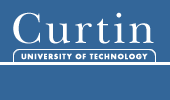168999 v.3 Bachelor of Science (Nutrition and Food Science)
BSc(Curtin)
Introduction
This course combines the theoretical foundations and practical experience ensuring graduates obtain the skills to be competent professionals in the food and nutrition field. In addition, staff have strong state government and industry links ensuring graduates have extensive exposure to the working life of nutritionists. Nutrition is the science of how the human body obtains and uses nutrients from food for maintenance, growth and renewal of body tissues to sustain life. The study of nutrition is based on and integrated with the sciences of biochemistry and physiology. Nutritionists advise individuals and the community about food choices for a healthy and nutritious diet. Graduate nutritionists typically undertake one further year of study to specialisein a professional area, including dietetics, food science and technology, health promotion or teaching.
Course Entry Requirements/Prerequisites
TEE Chemistry or Physical Sciences, Applicable Mathematics desirable. Prior learning in prerequisite areas will be considered on an individual basis.
Specific Requirements
Compulsory field trips are conducted throughout the course. STAT elements considered are E and either V or Q. Applicants for this course should refer to the Communicable Diseases and Criminal Record Screening/Clearance Section of this publication.
Recognition of Prior Learning
Applications for recognition of prior learning are assessed on an individual basis.
Duration and Availability
This course is three years full-time study, although first and second year are available for study on a part-time basis. Second and third year units cannot be undertaken before the completion of first and second years respectively.
Additional Course Expenses
Students may be expected to purchase a number of textbooks, readers and other vital study materials. In addition, students may also need to contribute some of the cost of consumables, which varies depending on the area of study.
Course Structure |
Hrs/Wk |
Credit |
Year 1 Semester 1 |
|
|
| 1643 |
v.6 |
|
Human Biology 133 |
4.0 |
25.0 |
| 303168 |
v.2 |
|
Epidemiology and Biostatistics 180 |
2.0 |
12.5 |
| 7230 |
v.5 |
|
Chemistry 117 |
7.0 |
25.0 |
| 7277 |
v.7 |
|
Food and Nutrition Systems 181 |
4.0 |
25.0 |
| 7713 |
v.7 |
|
Health Science Communication 180 |
2.0 |
12.5 |
| |
100.0 |
Year 1 Semester 2 |
|
|
| 10224 |
v.2 |
|
Chemistry 132 |
4.0 |
25.0 |
| 1644 |
v.7 |
|
Human Biology 134 |
4.0 |
25.0 |
| 307195 |
v.1 |
|
Practice of Public Health 180 |
3.0 |
25.0 |
| 7278 |
v.8 |
|
Nutrition 182 |
4.0 |
25.0 |
| |
100.0 |
Year 2 Semester 1 |
|
|
| 10627 |
v.3 |
|
Nutritional Physiology 281 |
5.0 |
25.0 |
| 2828 |
v.3 |
|
Principles of Biochemistry 281 |
5.0 |
25.0 |
| 302467 |
v.2 |
|
Introduction to Microbiology 132 |
3.0 |
12.5 |
| 303926 |
v.1 |
|
Food Safety 281 |
5.0 |
12.5 |
| 306154 |
v.1 |
|
Food Science 285 |
4.0 |
25.0 |
| |
100.0 |
Year 2 Semester 2 |
|
|
| 10628 |
v.3 |
|
Nutritional Physiology 282 |
5.0 |
25.0 |
| 2830 |
v.4 |
|
Nutritional Biochemistry 282 |
5.0 |
25.0 |
| 306155 |
v.1 |
|
Food Science 286 |
5.0 |
25.0 |
| 8338 |
v.9 |
|
Nutrition 284 |
5.0 |
25.0 |
| |
100.0 |
Year 3 |
|
|
| 300376 |
v.2 |
|
Nutrition and Food Science Stream |
|
200.0 |
| |
|
|
OR |
|
|
| 300375 |
v.2 |
|
Nutrition Stream |
|
200.0 |
| |
200.0 |
| |
|
|
|
|
|
Availability
| Year | Location | Period | Internal | External | | 2003 | Bentley Campus | Semester 1 | Y | |
The information displayed above refers to study periods and locations where the course is available for first time entry. Students are normally only offered or admitted to a course once.
Click here for a printable version of this page
|

